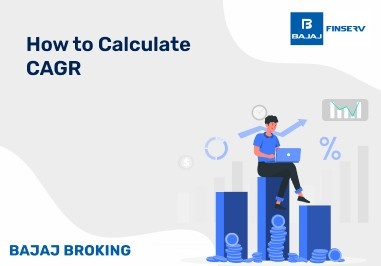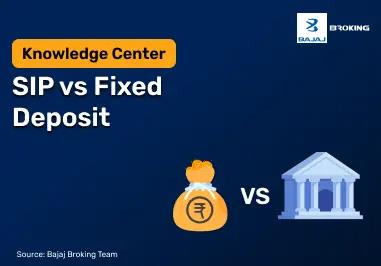When it comes time to open a demat account, many people simply go with a friend's recommendation. They fill out the paperwork, download the app, and make their entry into the market without giving the choice much thought.
It often becomes clear later that selecting a broker involves more than just a user-friendly app or low charges. The decision should be about the entire experience: the platform's reliability, any hidden fees, the quality of support when a trade freezes, and the confidence that your broker is acting in your interest.
If you are just starting out, or even thinking of switching brokers, here is a step-by-step guide to help you make a more informed choice.
Steps to Choose Right Stock Broker For Demat Account
To find the right broker for your demat account, follow this step-by-step guide:
Step 1: Define Your Trading Objectives
This may sound obvious, but many people tend to skip the first step itself.
You need to analyse what you are really trying to do in the market.
Are you here to make quick intraday gains, or are you looking to build long-term wealth through ETFs and blue-chip stocks slowly?
Your answer shapes the kind of broker you’ll need.
If you're all about quick trades and riding momentum, you’ll want someone who offers fast execution and slick charting tools. If you're more of a mutual fund SIP person, a basic, low-cost broker might be enough.
Step 2: Identify Your Trading Style
Are you an active trader who might execute several trades a day? Or are you a long-term investor who may only check the app once a month?
Your trading frequency affects everything, from the platform you choose to the fees you’re charged.
Intraday Trading and active traders might need brokers with advanced tools, APIs, margin funding, and lower brokerage on high-volume trades. But long-term investors? You probably care more about simplicity, security, and decent research.
So, before picking a broker, figure out how you like to trade.
Step 3: Compare Broker Fees and Features
This is where things get tricky.
Brokerage charges aren’t always as straightforward as they seem. There’s the classic flat fee model. Then there’s percentage-based. Some brokers waive off account opening fees, but sneak in higher AMC (Annual Maintenance Charges) or platform usage charges.
Do a full cost breakdown. Look at:
Brokerage per order
AMC and platform charges
Hidden transaction charges (like DP charges)
Charges on call & trade or SMS alerts (yep, those exist)
But fees aren’t everything.
A slightly more expensive broker might offer a 10x better trading platform or faster customer support. So balance price with quality.
Step 4: Evaluate Customer Service and Reliability
This one often gets ignored—until you’re stuck.
When your money’s involved and you can’t reach support, it’s not just frustrating—it’s terrifying.
So check if the broker has a responsive helpdesk. Do they offer live chat? Can you call someone and speak to a real human who actually knows about trading?
Also, reliability matters. You don’t want a glitchy platform on a high-volatility day.
Read app reviews. Test the demo. Ask fellow traders. A broker’s tech infra and service attitude make all the difference.
Step 5: How Well Does the Stockbroker Educate Its Clients?
Okay, this might sound like a bonus, but it’s not.
Brokers aren’t just selling you a platform—they’re teaching you how to use it. From live webinars to explainers on options to market commentary and case studies, good brokers invest in helping you become a better trader.
If you’re new, or even intermediate, pick a broker that invests in your learning. Look for:
Educational content (videos, blogs, tutorials)
Training sessions and webinars
Market research updates and explainers
And here's something I learnt the hard way: the more you know, the fewer mistakes you make. So if your broker is willing to educate you, that’s a massive green flag.
Step 6: Ease of Depositing and Withdrawing Funds
Few things are more frustrating than having to wait several days to withdraw your own money. Your broker should make deposits and withdrawals simple, prompt, and transparent.
Can you add funds instantly via UPI or net banking? Are withdrawals processed the same day? Is there a minimum limit or a cut-off time?
Some brokers shine here, with seamless integration between your bank and demat account. Others? Not so much.
Before you commit, read their process. And if it feels like a bureaucratic mess—you already have your answer.
Factors Should You Consider Before Choosing the Right Broker
So, you’ve got your checklist of preferences and goals. Now, here are a few specific things you want to compare across brokers:
Brokerage Charges
Even a small fee like ₹20 per trade can add up over time, especially for an active trader. If you plan to focus on delivery trades or SIPs, look for brokers with zero delivery charges.
If you prefer intraday trading, a broker with flat rates or volume-based discounts might be a better fit. At the same time, sometimes paying a little more for a service that gives you peace of mind can be worthwhile.
Account Opening and Maintenance Charges
Some brokers offer free account opening—but that doesn’t mean they’re free forever.
Watch out for:
Annual maintenance charges
DP (Depository Participant) fees
GST and regulatory charges
Tip: Read the fine print. Some of these only show up in your ledger after the first year.
Trading Platform and Tools
This one’s personal.
Some people want all the bells and whistles—live charts, 50+ indicators, option chain tools. Others just want a clean, no-nonsense UI.
Use the free trial or demo login (a lot of brokers have this).
Ask yourself: Is it fast? Does it crash during high volume? Can I trade from both desktop and mobile easily?
The fancier the platform, the steeper the learning curve. So choose based on your comfort zone.
H3Customer Service and Support
If something goes wrong—and eventually it will—you need backup.
Your broker’s support team should be:
Reachable
Efficient
Capable
Bonus points if they have a good support library or chatbot that can help you avoid wait times altogether.
Research and Advisory Services
This one’s more relevant if you’re not a full-time DIY trader.
If you appreciate recommendations, stock reports, and market outlooks, pick a broker with a solid research desk.
But be cautious. Not all “tips” are reliable. Trust brokers who offer research backed by data, not hype.
Additional Read: Online Broker vs. Robo-Advisor
Conclusion
Choosing the right broker for your demat account is like choosing a co-pilot for your financial journey.
They’ll affect how fast you move, how safely you navigate, and whether you enjoy the ride or end up frustrated at every turn.
So take your time. Compare. Test. Read reviews. Ask around.
And even after choosing, keep checking in. If your current broker isn’t working for you anymore, you’re not stuck. Switch. It’s your money. Your goals. Your future.
You deserve a partner, not just a platform.














